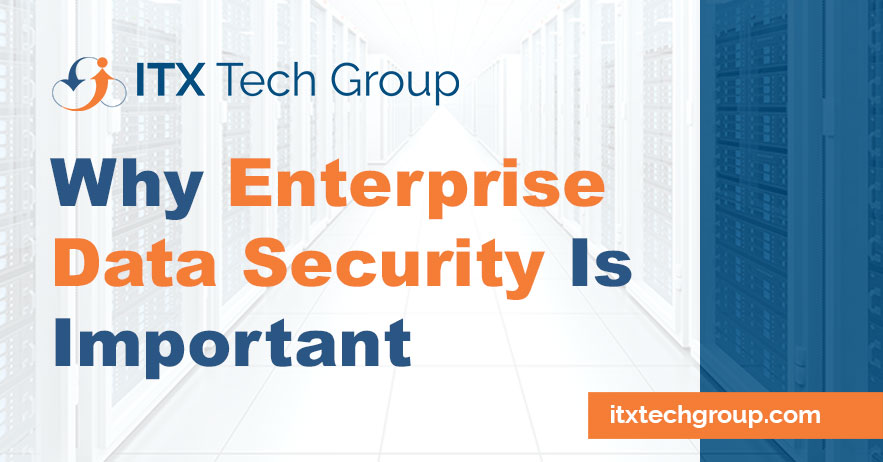In today’s day in age, where data quite literally serves as the lifeblood of businesses, data security stands as the cornerstone of success and resilience, especially for enterprise companies.
With the increasing prevalence of cyber threats and regulatory requirements, the need for robust data security measures has never been more critical.
In this article, we’ll dive into why data security matters most for enterprise companies and how it underpins their operations, protects their assets, and preserves their reputation in an increasingly interconnected and digitized world.
Protecting Valuable Assets
Enterprise companies handle vast amounts of sensitive data, including intellectual property, trade secrets, proprietary algorithms, customer information, and financial records.
Without adequate protection, this valuable information is vulnerable to theft, manipulation, or exploitation by cybercriminals, competitors, or malicious insiders.
Data security measures such as encryption, access controls, and data loss prevention help enterprise companies safeguard their valuable assets, ensuring confidentiality, integrity, and availability across all systems and platforms.
Mitigating Financial Risks
Data breaches and cyberattacks can have severe financial implications for enterprise companies, resulting in direct financial losses, regulatory fines, legal fees, and reputational damage.
According to recent studies, the average cost of a data breach for enterprise companies can run into millions of dollars.
Data security measures help enterprise companies mitigate these financial risks by preventing data breaches, minimizing the impact of cyber incidents, and ensuring compliance with data protection regulations.
By investing in robust data security measures, enterprise companies can protect their bottom line and preserve shareholder value.
Ensuring Regulatory Compliance
Enterprise companies operate in highly regulated industries, with stringent data protection and privacy requirements imposed by regulatory bodies such as GDPR, HIPAA, SOX, and PCI-DSS.
Non-compliance with these regulations can result in severe penalties, fines, and legal repercussions, as well as damage to the company’s reputation and credibility.
Data security measures help enterprise companies ensure regulatory compliance by implementing controls, policies, and procedures that align with regulatory requirements.
By adhering to data protection regulations, enterprise companies demonstrate their commitment to ethical and responsible data handling practices, thereby avoiding costly fines and legal liabilities.
Safeguarding Customer Trust
Trust is paramount in business, especially for enterprise companies that serve a diverse customer base across multiple industries and regions.
Customers expect enterprise companies to safeguard their personal and sensitive information and uphold the highest standards of security and privacy.
A single data breach or security incident can erode trust and tarnish the reputation of an enterprise company, leading to loss of customers, revenue, and market share.
Data security measures help enterprise companies build and maintain customer trust by demonstrating a commitment to protecting sensitive data, preventing breaches, and responding effectively to security incidents.
By prioritizing data security, enterprise companies can differentiate themselves in a competitive market and preserve trust and loyalty among customers and stakeholders.
Enhancing Business Continuity
Operational disruptions, whether due to cyberattacks, natural disasters, or system failures, can have far-reaching consequences for enterprise companies, affecting business continuity, productivity, and customer service.
Data security measures help enterprise companies enhance business continuity by implementing robust disaster recovery plans, business continuity strategies, and incident response protocols.
By proactively identifying and mitigating potential risks and vulnerabilities, data security measures help enterprise companies minimize the impact of disruptions and maintain uninterrupted operations, even in the face of adversity.
Conclusion
Data security matters most for enterprise companies due to the critical role it plays in protecting valuable assets, mitigating financial risks, ensuring regulatory compliance, safeguarding customer trust, and enhancing business continuity.
By investing in robust data security measures, enterprise companies can preserve the integrity and stability of their operations, maintain trust and confidence among customers and stakeholders, and mitigate the risks associated with operating in an increasingly interconnected and digitized world.
In an environment where cyber threats are constantly evolving, data security remains the cornerstone of success for enterprise companies, providing a solid foundation for growth, innovation, and long-term sustainability.
ITX Tech Group has been serving small, medium, and large scale businesses with their IT support and cybersecurity needs all over the United States since 2011, so we’re confident we can provide you with affordable, professional IT solutions for years to come!
Connect with us for a free consultation to discuss your business technology needs.

